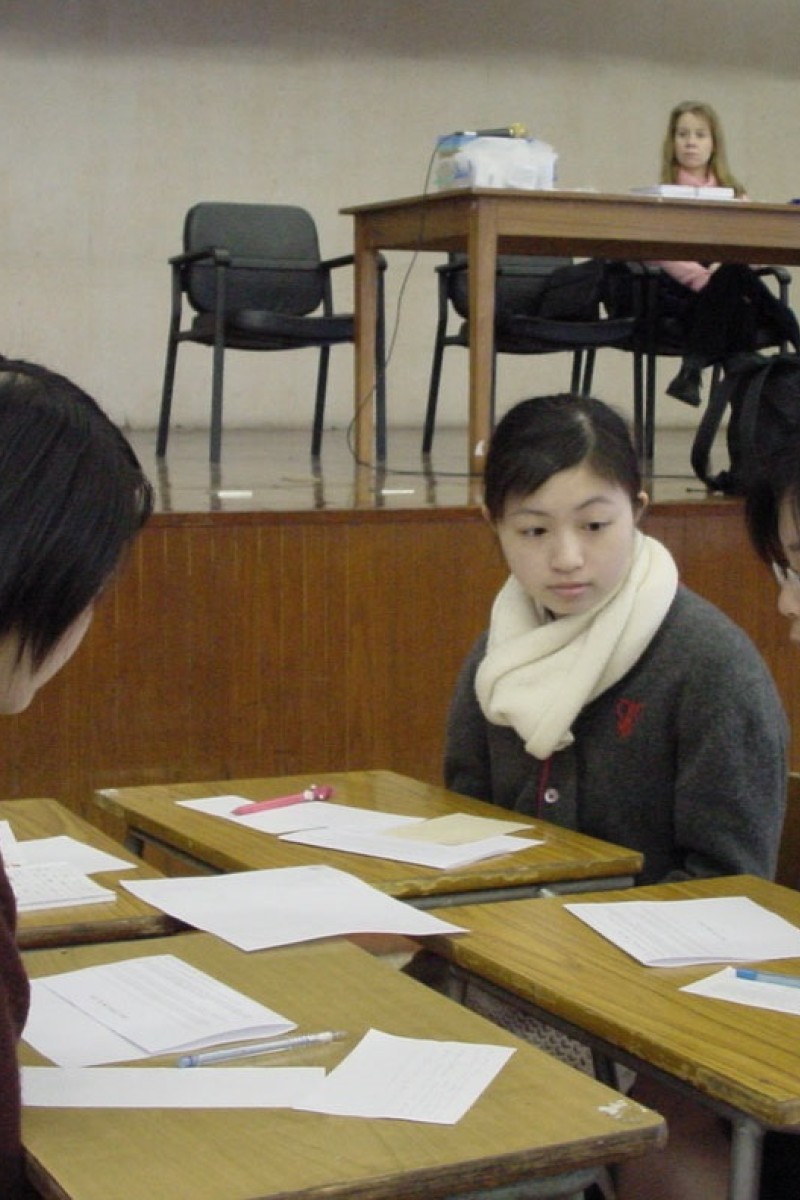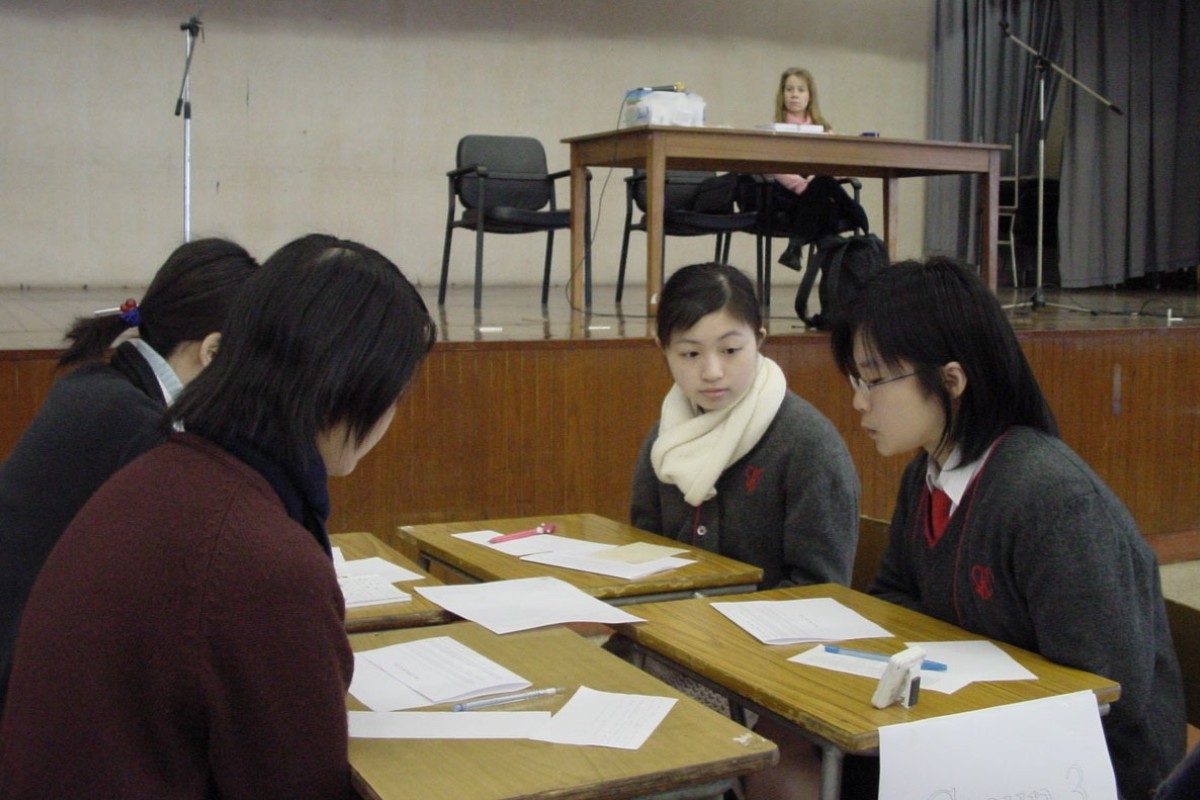
What to do when there's a dominant candidate taking over your HKDSE Chinese exam group discussion
Don’t panic if you get stuck with an overeager group mate, these are some acceptable ways to take your rightful turn

We’ve all had that dominant group discussion member that seems to go on and on without any regard for anyone else’s turn. You may think it would be rude to interrupt someone who is speaking, but you also need to have a fair chance to showcase your skills too.
So how do you do this in a polite and tactful way that won’t lose you points with the examiners? Young Post spoke to Modern Education’s Chinese language star tutor Siu Yuen, who said that there are penalties for candidates who talk over each other, dominate group discussions, or behave impolitely during the exam.
Siu said that students, when confronting someone who is trying to take over an oral exam discussion, should use verbal and non-verbal cues to show others they are ready to respond.
“Students can lean forward slightly, raise their hands, or use signs such as saying ‘yes’ to show that they’re listening. Then, they should respond as soon as their opponents finish talking,” Siu said.
If that’s not enough, or if someone else speaks first, Siu said students should signal that they’re next in line. “You can say ‘go ahead, I’ll go after you’. That will help other candidates realise you plan to speak next,” he said, but added that it’s not a guarantee others will wait for you.
What’s the best way to start your speech? “Always begin with a respectful phrase like ‘I’m sorry to interrupt’ or ‘Please excuse me’ which shows you are making an effort to be polite.
Siu also said candidates should make a note of how long the other candidates’ speeches are. After, say, a minute has passed, you should start to use your verbal and non-verbal cues to show you want to talk.
